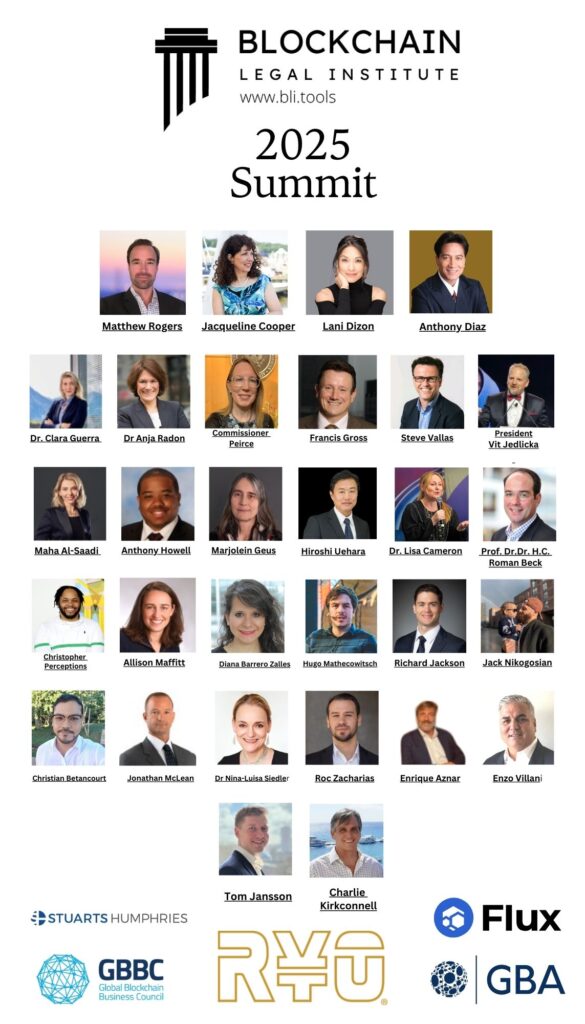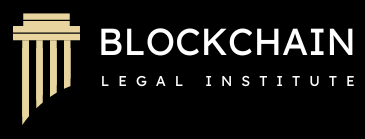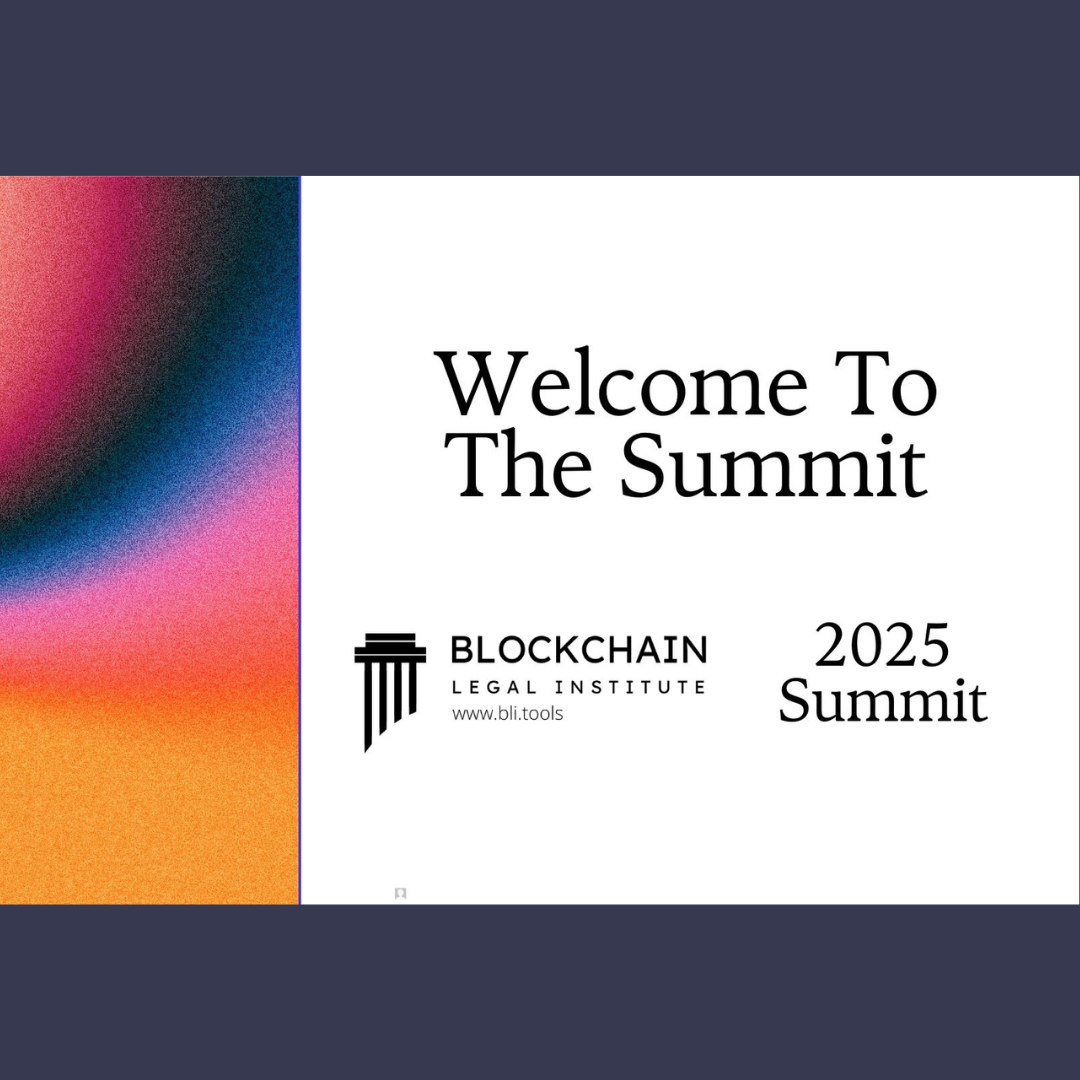The Balance Between Innovation and Compliance Took Center Stage At BLI’s March 2025 Global Summit.
Written by Isa Nsereko
On 21st March 2022, the Blockchain Legal Institute (the only global Blockchain Legal Trade Association) and Ryo Digital (a Japan-based global web3 Digital Payment Solution) co-hosted the 4th Global Summit 2025 to discuss the latest trends in Blockchain Technology. The virtual summit offered insights into how crypto-businesses can leverage Sandboxes, Self-Regulatory Organizations (SROs), and economic zones for economic development.
Panels of experts discussed the SRO Model, the opportunities and challenges for global sandboxes and cross-border compliance, compliance frameworks for emerging technologies in blockchain and fintech, and how blockchain and economic zones can drive innovation and compliance. The chief moderator of the summit was Jacqueline Cooper, JD, CEO of the Blockchain Legal Institute (BLI) & Matt Rogers (Co-Founder).
In a keynote address, Lani Dizon, co-founder, and president of Zenza Capital and RYO Coin said that regulatory frameworks should not be seen as a barrier but as a foundation and pathway to foster innovation. Dizon emphasized that a critical balance needs to be struck between technology, compliance, and usability to achieve mass adoption of blockchain technology. Dizon said that strict compliance and innovation can co-exist.
Furthermore, Dizon said that SROs and sandboxes are controlled environments that allow businesses to innovate with clear guidelines and that regulatory frameworks are essential for industry integrity and consumer protection. Dizon noted that Special Economic Zones (SEZs) play a role in fostering innovation, attracting pioneer industries, and setting blueprints for global standards in blockchain technology.
The panel discussing SRO models noted that these models can be enablers in creating standards and acting as platforms for sharing information and best practices within the industry. The panel pointed out that SROs can transform the blockchain and crypto industry from a confrontational to a more collaborative approach with more dialogue needed between the market and regulators. A regulatory framework was deemed important in the mass adoption of blockchain technology.
In a special exclusive interview with the BLI, Hester Peirce, Commissioner at the U.S. Securities and Exchange Commission (SEC) mentioned the importance of providing a regulatory framework for the Digital Asset industry and the need for experimentation with sandboxes to figure out where blockchain technology can have its best fit and use cases. *Disclaimer: The views of Commissioner Peirce are her personal views and not necessarily those of the SEC or its other commissioners.
Commissioner Pierce mentioned the need to lower the entry barriers to make the industry more competitive in a regulated environment. Pierce said that sandboxes provide an environment for innovation within sets of conditions that can then be refined from the lessons learned.
Commissioner Pierce urged the Digital Asset industry players to consider a balance in achieving the regulator’s objectives while at the same time considering commercial viability. Commissioner Peirce warned the stakeholders to be wary of bad actors.
The panel on global sandboxes and cross-border compliance noted that more engagement is needed with the regulators, the industry, and the community. Communication was cited as the key factor in creating a more enabling environment to explore the potential of blockchain technology.
The panel discussing compliance frameworks for emerging technologies and best practices noted that compliance must be built into an enterprise’s design right from the start and not brought in later. The panel also agreed that innovation and compliance don’t need to be enemies. Both innovation and creation cut across SROs, sandboxes, and economic zones. The panel pointed out the importance of education for all stakeholders including regulators.
Another panel discussing building trust with self-regulation and how to be more ethical in our communities noted the increasing use of regulatory sandboxes in innovation in the blockchain space. The panel pointed out the crucial role of regulatory sandboxes in familiarizing regulators with ongoing innovations in the blockchain space. To remain ethical, SROs must avoid conflict of interest or abuse from information asymmetry. The panel recommended the harmonization of regulations to ensure smooth cross-border operations.
The panel discussing economic zones noted that these zones are a good starting point for blockchain innovation. The panel highlighted the need for smart blockchain regulation to keep industry players in check.
In his endnote speech, Anthony Diaz, Founder and CEO of Zenza Capital, recommended a consumer-first approach in which emerging technologies will lead the industry to the consumers.
The summit closed after over four and a half hours of insightful deliberations from various panelists and experts. The summit presented a global perspective on recent trends and developments in the Blockchain space. The next BLI Global Summit will take place in October 23rd 2025 and will focus on consumers.


